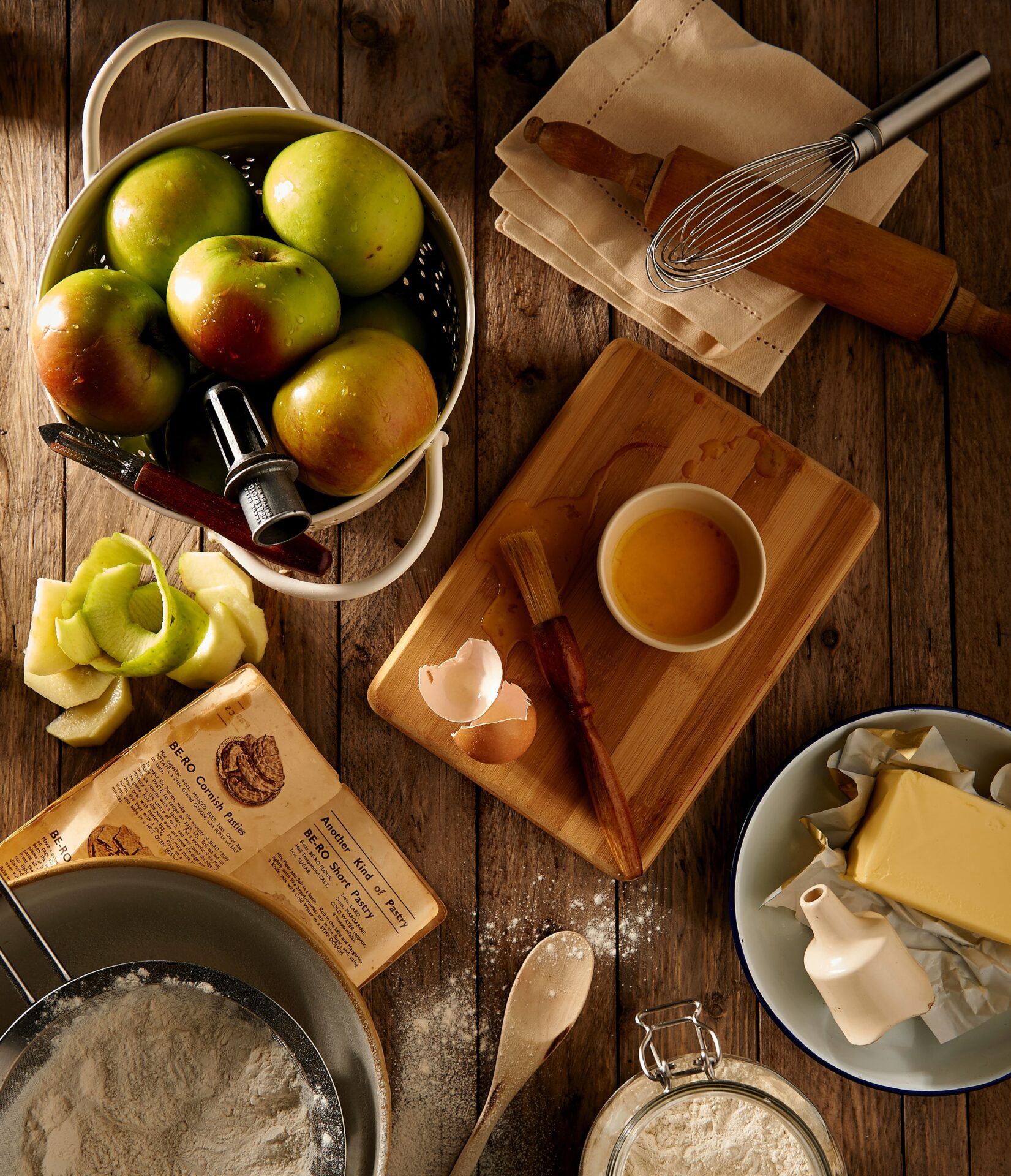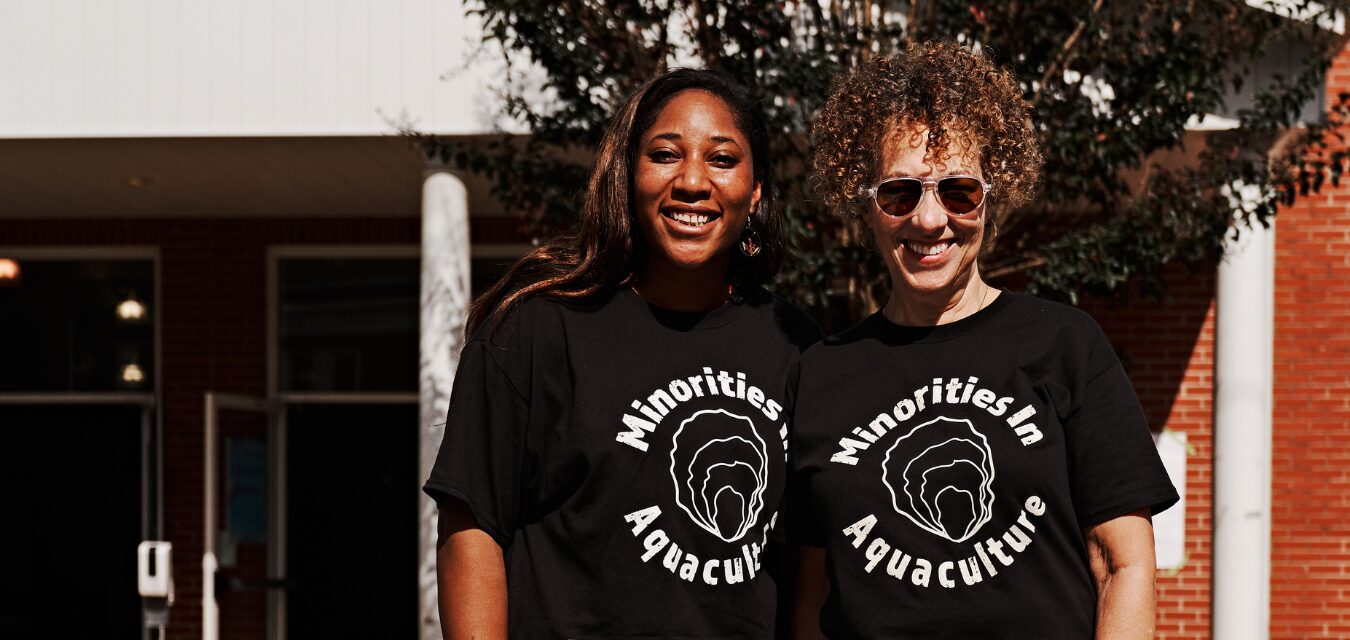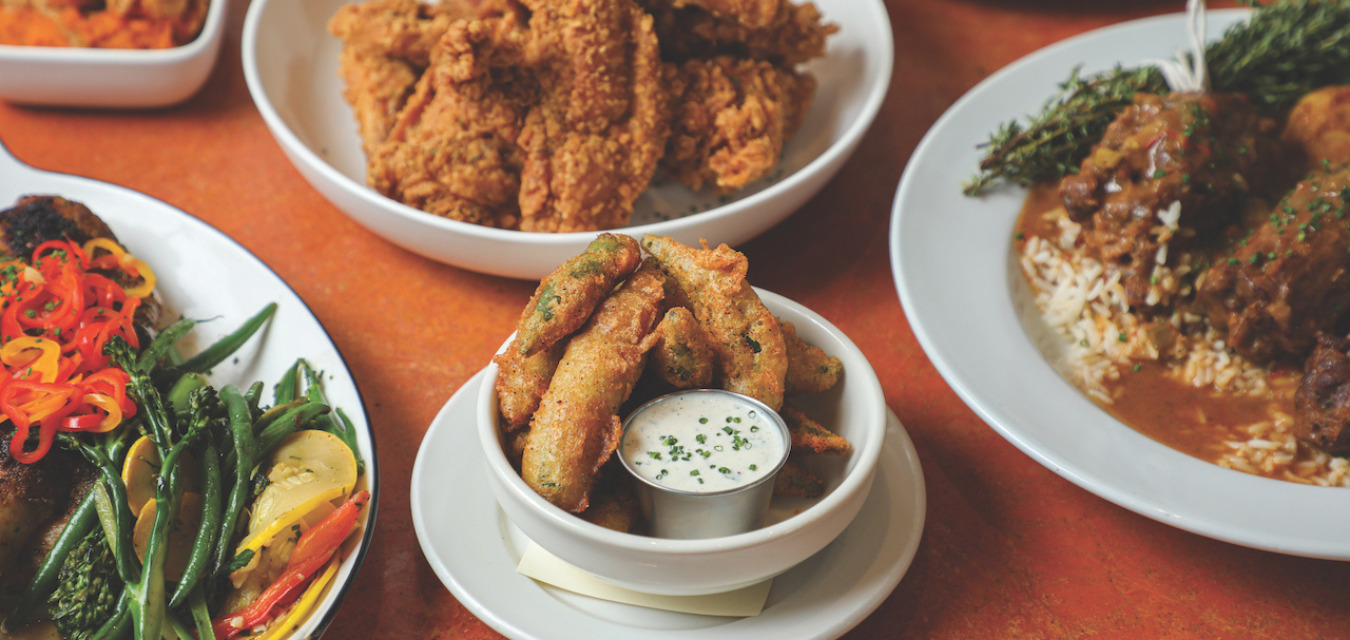[playht_player width=”100%” height=”90px” voice=”en-US-JaneNeural”][playht_listen_button inline=”yes” tag=”p”]
These 10 innovating organizations are taking action to tackle big food-focused issues around the Southeast
Chris Shepherd and Lindsey Brown – Southern Smoke Foundation, Houston
Innovator Cause: Providing grants for mental health and life crises events for food and beverage hospitality workers.

Southern Smoke Foundation (SSF) was launched by chef Chris Shepherd informally in 2015—he created a fundraising event for the National Multiple Sclerosis Society in honor of a friend—but in 2017, Hurricane Harvey, which hit Houston hard, shifted the focus. “We saw a need to help everyone, from farmers to prep cooks,” Shepherd says. They quickly diverted the funds to provide grants for emergency relief for those in the hospitality industry, giving away $1.5 million that first year. And then, the need exploded again in 2020. Today, grants are given across the spectrum of food and beverage workers in all 50 states, covering everything from medical treatments to housing to funerals—to date, they’ve distributed more than $11.5 million to food and beverage workers nationwide, touching all parts of the industry from boutique winery operators to chain restaurant staffers.
The year 2020 exposed another critical issue in hospitality: a complete lack of mental health resources. SSF stepped in, developing a partnership with the University of Houston. Working with the university’s graduate program, they created a system for funding no-cost counseling services to industry workers. The program has now expanded to four additional states—Louisiana, New York, California, and Illinois—with goals to add more university partnerships in the coming years.
“Working directly with the universities really works for us because not only does it give f and b workers a direct link to PhD-level graduate students, we have their supervisors, we have researchers,” says SSF executive director Lindsey Brown. “Plus, it’s pretty cool that we’re also able to support higher education. It’s a win-win.”
The organization’s largest fundraiser, the Southern Smoke Festival, has exploded to include as many as 60 chefs serving 3,500 guests over the course of one October weekend each year (set for October 5, 2024). In 2023, that event alone raised $1.8 million—and there are more fundraisers in the works, including an online auction. The organization also recently acquired the Charleston-based nonprofit Pay It Forward, which distributed financial aid to food-and-beverage workers, in order to expand their reach.
Shepherd and Brown (who are also married) are now dedicated to the organization full-time—Shepherd has since left his restaurants and serves as founding director while Brown closed her hospitality PR firm to serve as executive director. “There’s still so much need,” Shepherd says. “But what we’ve learned is that we can stay in our lane. Emergency relief and mental health are always going to be our focus.”
Chris Williams – Lucille’s 1913, Houston
Innovator Cause: Combatting food insecurity in Houston’s historically African American communities.
Chris Williams’ family goes back generations in Houston—his restaurant, Lucille’s, is named after his great-grandmother, who was an entrepreneur and a trailblazer for her time. When the pandemic hit in 2020, Williams turned his eye toward his own, specifically the historically African American neighborhoods of Houston. From feeding graveyard shift-workers at the hospital to providing meals to elderly communities, Williams kept his restaurant staff employed while investing back into the parts of the city that had raised him up.
“The whole idea was not just to provide commodity meals but meals with dignity, with thought put into the nutritional needs of the community we were feeding,” Williams says. “We decided to hit them where their palates are.” Once the need outgrew his restaurant kitchen, Williams moved operations to a production kitchen to keep up—at one point they were prepping, cooking, and delivering 2,200 meals a day.
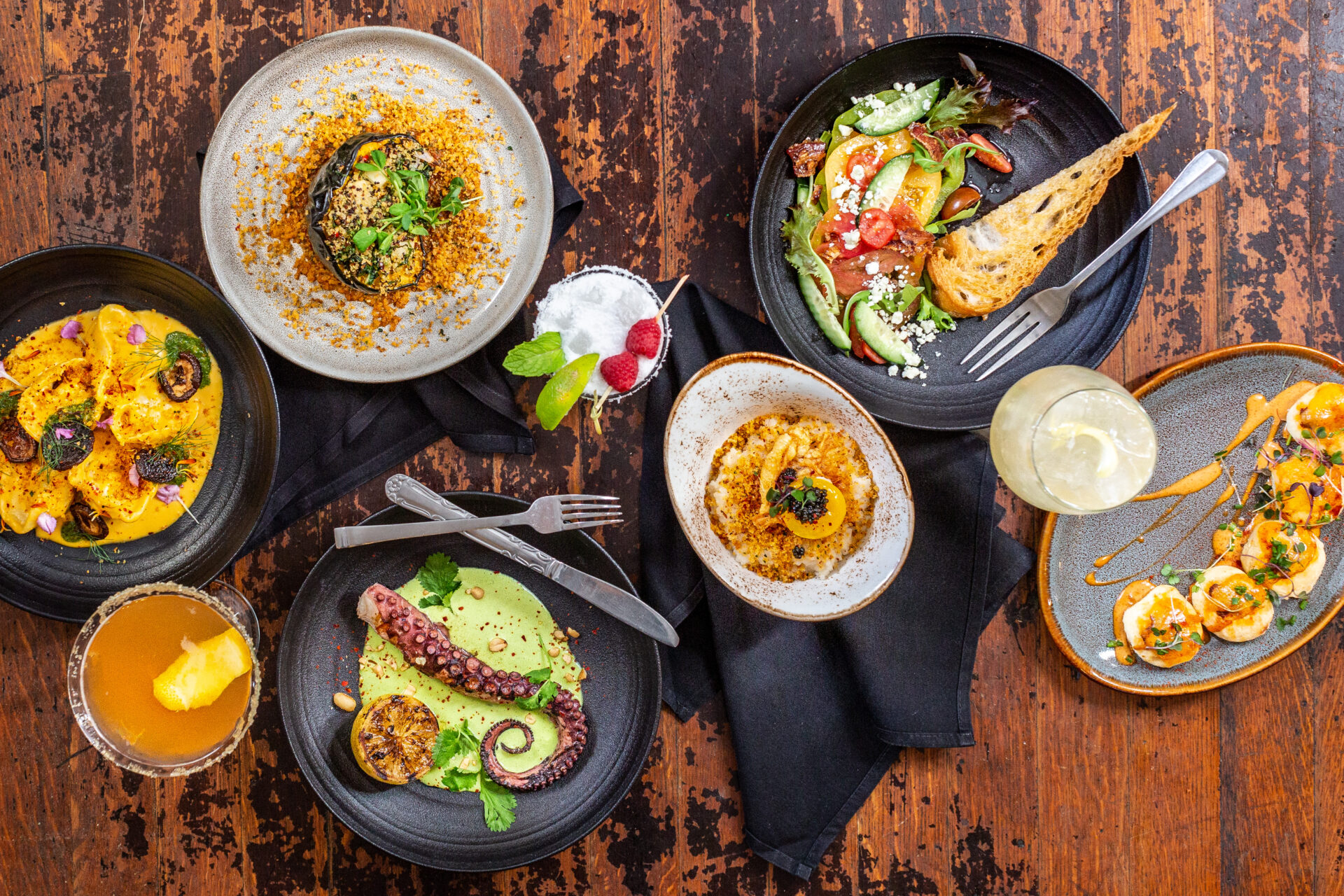
Postpandemic, Williams wanted to continue giving support, but now with a “teach a man to fish” philosophy—his nonprofit Lucille’s 1913 provides valuable workforce training to those in the community who need it most. “If you know how to cook, you’ll always be in demand,” Williams says. The philosophy now extends to farming thanks to an initiative launched in 2022 in Kendleton, Texas—once home to emancipated slaves following the Civil War—where the organization is farming on a 10-acre parcel of land. It not only supplies staple produce for the community and meal production arm of Lucille’s 1913 (they still prep and serve 700 meals a day for school-age children) but also acts as a training ground for members of the community.
Williams’ philanthropy umbrella now also extends into the Third Ward, where the Hogan Brown Gallery and Eldorado Ballroom are operating under Lucille’s 1913. The nonprofit gallery is meant to empower the livelihoods of art and culture while the ballroom, a historically Black-owned event space, has been rehabbed into a center for community celebration and the arts. “The goal is to really create a vertically integrated ecosystem that specifically focuses on the people who haven’t been considered in the past,” Williams says. “All in order to serve them with dignity and respect.”
Julie Chernoff – Les Dames d’Escoffier Legacy Awards, International
Innovator Cause: Supporting and mentoring women in hospitality

Les Dames d’Escoffier, an international organization bringing together female leaders in food, beverage, and hospitality, has offered their Legacy Awards since 2009 in order to provide targeted mentorship opportunities in cities throughout the United States. Les Dames members volunteer to host “a week with a Dame” in their respective industry, and this year, they are providing a number of experiences in southeastern cities that are hosting for the first time.
Applicants must have four years of related work experience and are asked what they hope to accomplish if selected to participate. After the experience, all winners attend the LDEI Annual Conference, where they share their experiences and network with other Dames. Dame Julie Chernoff, chair of this year’s Legacy Awards Committee, says that although they do sometimes repeat experiences, there are new awards each year, inspired by Dames around the country volunteering to host as well as brainstorming with Legacy Committee members. One such member, Beth D’Addono, past president of the New Orleans chapter (and frequent contributor to The Local Palate) suggested NOLA Dame Mali Carow, general manager of the Four Seasons Hotel, who agreed to host the Hospitality, Catering and Event Planning Legacy Award, which LDEI likes to offer every year at a different venue.
“It’s different a little bit every year,” says Chernoff. “We don’t usually offer the same experience more than two or three years in a row.” This year, Dallas is hosting a mentorship for the first time, an entirely new award in culinary education that will be tailored to the winning applicant’s particular experience and area of interest. One longstanding venue had to be put on hold, and the result was an opportunity to hold the Fine Beverages Legacy Award in Austin, providing access to the exploding Texas Hill Country wine and craft beverage industry. Hosts of multiple businesses, from Pedernales Cellars to multiple breweries and a cidery.
Chernoff also serves on the board of MAZON, an international antihunger food advocacy group that lobbies Congress and the FDA on legislation like the Farm Bill. As a result, she’s particularly proud of the Washington, DC, opportunity in Food Policy and Advocacy, another new award being offered this year in the Southeast. The award will be tailored specifically to the applicant, as Chernoff hopes that it will broaden the appeal of LDEI into other industries. “This is a cause that’s very near and dear to my heart. It adds another level of inclusivity in that someone who…might not have heard about Les Dames will now have something they can apply for.” North Charleston-based chef and writer Amethyst Ganaway, whose focus is the foodways of the American South and African diaspora, received a Legacy Culinary Award in 2020 and 2021. Ganaway calls it “a life-changing experience” and says, “Winning the award brought me many things: recognition and respect in the culinary field, an opportunity to network and be in community with other women in this industry from around the world, and an opportunity to work alongside some of them.” Ganaway has gone on to become a member of Les Dames’ Charleston chapter and says she credits winning the award and joining LDEI with propelling her career.
Ashley Smith – Black Soil KY, Kentucky
Innovator Cause: Creating equity and opportunity for Black farmers
“If Mother Nature can’t see who puts the seed in the ground, then why are there such enormous disparities in agriculture?” Ashley Smith asks. This is the driving question behind Black Soil KY, which is drawing attention to the fact that Kentucky lost 121 Black-owned farms between 2017 and 2022 (a 15 percent decrease), and correcting for it: Since 2017, under Smith’s leadership as founder and COO, Black Soil KY has invested more than $1.5 million into Black farming operations in the state to correct for barriers common to other industries as well: “discrimination and bias in supply chain decision making, deficient and underdeveloped consumer support, and the absence of generational succession of family farms,” Smith succinctly outlines.

Not only that, but Black Soil KY helps these farmers develop markets and sales channels and cultivate relationships with the public, from underserved urban communities to Black chefs and restaurateurs. As a result, “within the same five years, the value of Kentucky Black farms and the market value of their products grew at five times the rate of all other farms, according to the 2022 USDA Census of Agriculture,” Smith says.
Part of this strategy is agritourism in the form of farm tours and farm-to-table dinners featuring Black chefs, along with participation in local events like Lexington Vegan Week and SoulFeast Week. “We have a ton of fun creating engagement and accessibility for hard-to-reach and underrepresented consumers,” Smith says. There’s also a farmers market component, as well as partnership with grassroots food distribution organizations to provide access to vulnerable communities. The result, Smith says, is that “Black Soil KY is the undisputed and leading buyer of Black farm goods and wares” in Kentucky—and they’re not stopping there. With support from the USDA Appalachian Regional Food Business Center, they are planning expansion of their supportive programs for Black farmers in Tennessee, Ohio, West Virginia, Virginia, and Maryland over the next five years.
Tina Singleton – Transformation Table Lowcountry, Charleston
Innovator Cause: Building community, social justice, and racial equity
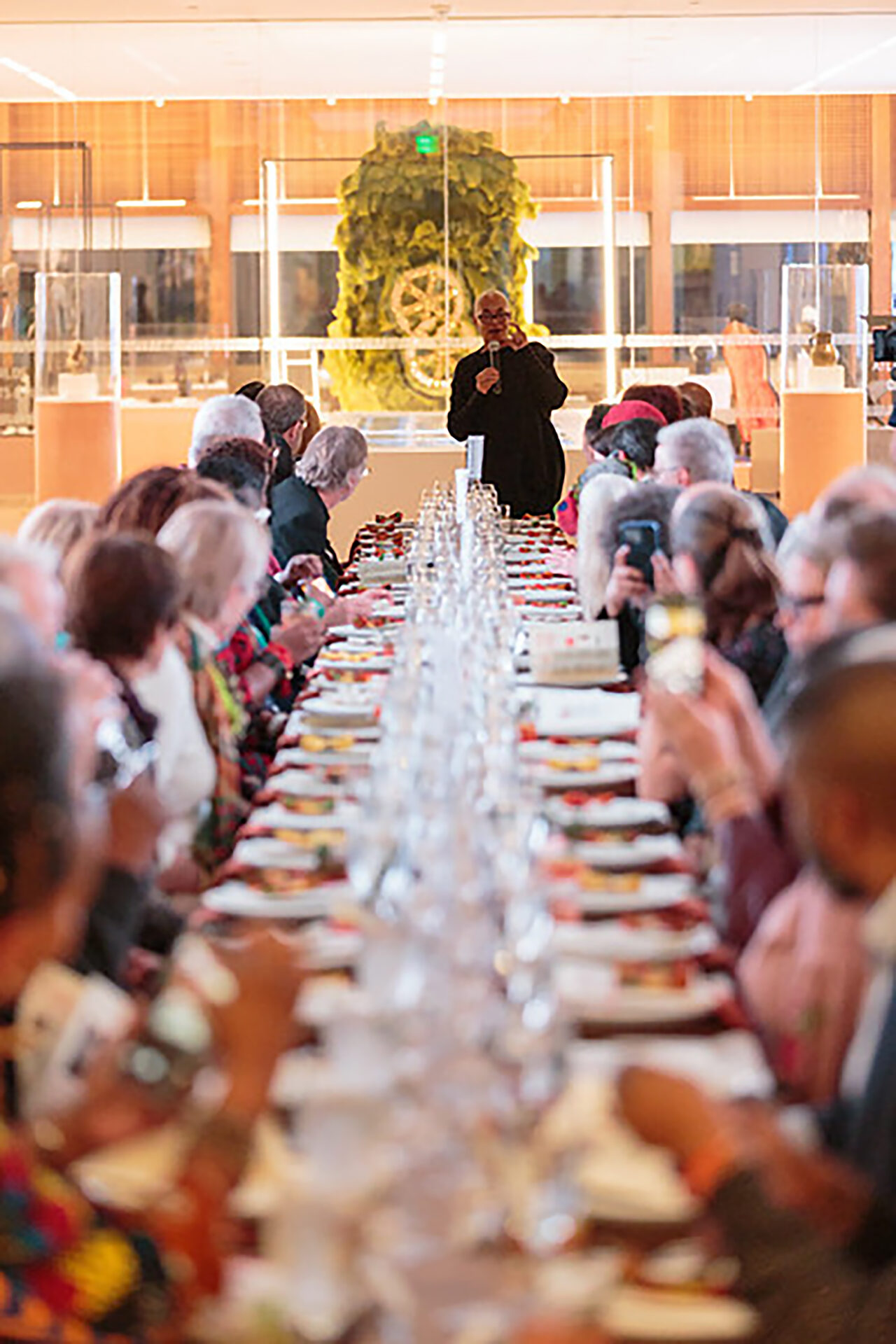
Born in Germany to an Air Force family, Tina Singleton has lived all over the world, in Central African Republic and Benin, West Africa; in London and Kabul; in New York City and on the West Coast. But when she moved to Charleston to be near family and put her farming certification to use, she recognized both a need and a unique opportunity.
At an event commemorating the one-year anniversary of the racially motivated massacre of nine people at Mother Emanuel church in Charleston, Singleton heard Dr. Bernice King’s exhortation: “Go to each other’s homes, have dinner!” Immediately Singleton thought of dinners she used to host while working as a disability programs technical advisor in Afghanistan. “I planted a garden with my guards in my compound,” she remembers. “I planted way too much, and since I liked to cook, I decided to host 10-person lunches for foreigners and local Afghans who wanted to attend. It was a way to relax in a stressful environment, come together with others, and share a meal. I thought, why not try the concept in Charleston?”
Transformation Table held its first 10-person dinner in November 2016 with a group of strangers who volunteered to host, attend, and get to know each other. Since then, the program has partnered with AccessAbility and been renamed Transformation Table Lowcountry, reflecting Singleton’s goals for expanding access and spreading to a wider range of communities. There are two types of dinners: those hosted by organizations, such as the MLK Beloved Community Dinner at the International African American Museum this past January, and those held in the home of a volunteer. Individuals wanting to attend can fill out a questionnaire, and Singleton organizes each dinner based on their responses—she says this is her favorite part.
“The people who attend Transformation Table dinners are looking to connect with others in a safe, nonjudgmental environment, and are open to meeting people different than themselves,” she says. “Equally important, our guest love food and like to eat. They are excited to try cuisine they may not have had an opportunity to experience before.” She’s developed a network of chefs who love to share cuisines from around the world; recently TT Lowcountry also partnered with Fresh Future Farm, a Black-led urban farm and grocery store in North Charleston. Although there is a standard ticket price to attend a dinner, Transformation Table institutes an equitable access payment policy in which people can pay more or less based on what they can afford. “We strive to make our Tables as inclusive as possible, to include as many diverse voices from the community as possible,” Singleton says. “So far, it’s been working. We are seeking sponsors and donors to help us underwrite the dinners in support of our equitable access model. We’d love to have Transformation Table in every community throughout the country.”
Madelyn Smith – Common Grain Alliance, Mid-Atlantic
Innovator Cause: Rebuilding a sustainable local grain economy
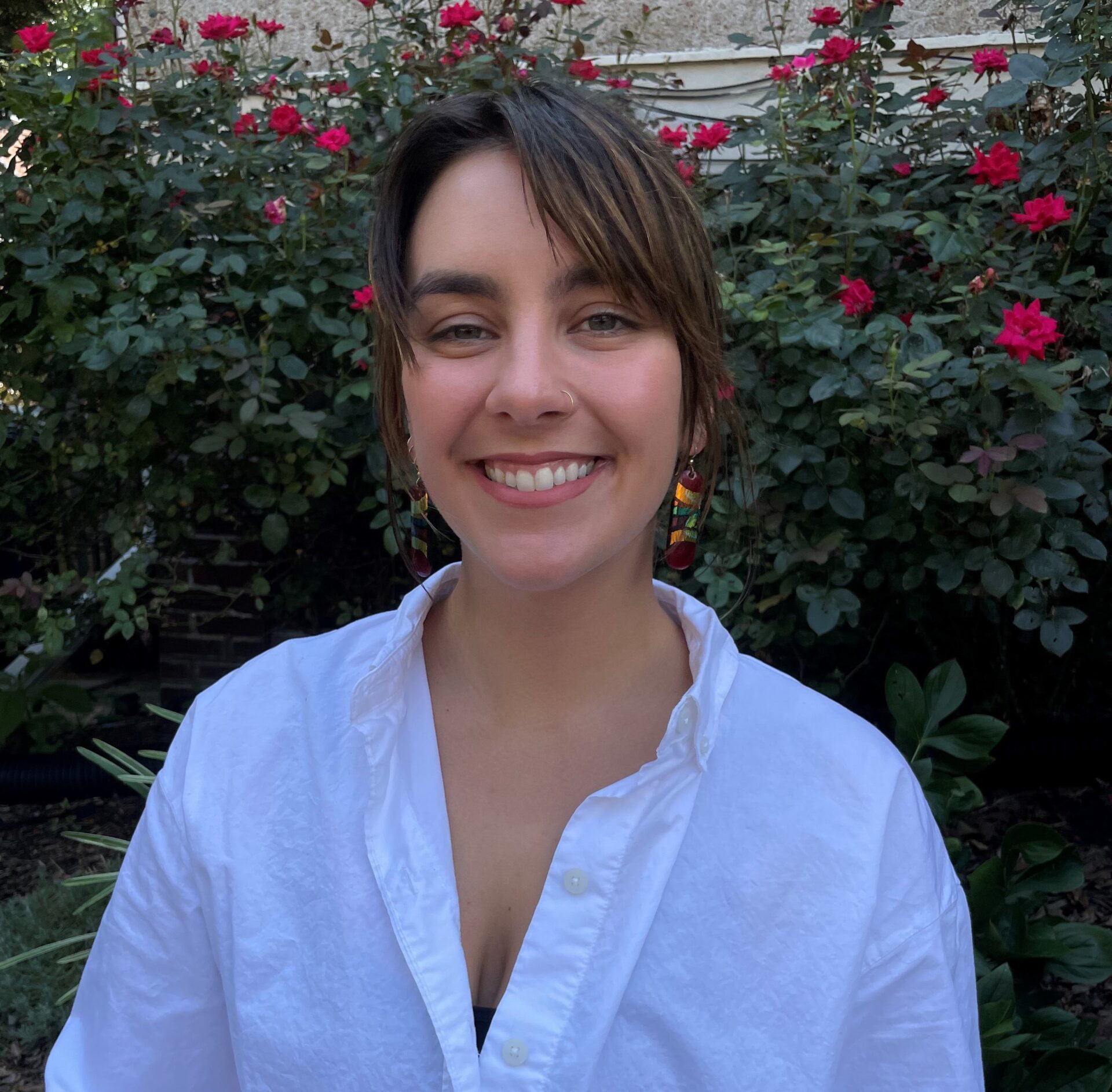
Most days, grocery shoppers push carts full of bread, pasta, cereal, flour, and rice, likely without knowing where the grains came from or who grew them. Common Grain Alliance (CGA), a grassroots organization founded in 2018, is addressing this disconnect by rebuilding a local grain economy in the Mid-Atlantic region. “The local grain movement is a new movement, but also old,” says Madelyn Smith, executive director of CGA. “In many ways, it represents returning to a system that used to exist, where grain farmers, mills, bakers, and consumers all lived in the same community.”
The local grain economy focuses on quality over quantity, serving as an alternative to the commodity grain system. Those who produce and consume grains from CGA growers are supporting sustainable farming and receiving a high-quality product. “Our food choices impact the health of the environment,” says Smith, “and [the] food we have access to impacts the health of our communities.” CGA encompasses 120+ grain businesses and community members, largely located in Virginia, Maryland, Delaware, North Carolina, and Pennsylvania, who support an “equitable and regenerative” food system.
Becoming a member, attending events like baking workshops, and donating to the cause are just a few ways to get involved. The community is also encouraged to buy local grains from CGA growers and producers and shop at the organization’s Mid-Atlantic Grain Stand & Share in the DC-Maryland-Virginia area. Looking ahead, Smith hopes to increase membership, events, and educational programs, as well as connect CGA with other local and regional grain movements across the country including in the Northeast, Northwest, and Midwest. Many Southern dishes are built on grains—buttermilk biscuits, shrimp and grits, crab rice, and cornbread, just to name a few—and with CGA’s continued growth, community members in the Mid-Atlantic and beyond may soon be better acquainted with the farmers behind the foods they love.
Greg and Subrina Collier – Bayhaven Food & Wine Festival, North Carolina
Innovator Cause: Recognizing Black culinary talent
“Southern food is love and raw,” says Subrina Collier, who cofounded Bayhaven Food & Wine Festival in Charlotte, North Carolina, with her husband, chef Greg Collier, to celebrate Black foodways. The pair had noticed a lack of representation in the food-and-wine festival space. “Every festival we went to, we kept looking for ourselves,” says Greg, a four-time James Beard Award semifinalist. “And we just couldn’t seem to find anything focused on our culture and heritage except outside these festivals. So, Subrina suggested we do our own.”

Subrina and Greg were both born and raised in Memphis, Tennessee; Subrina from Frayser (known as The Bay) and Greg from Whitehaven, which inspired the festival’s name. They started their culinary careers waiting tables, hosting, and working as line cooks, then moved to Phoenix, Arizona, where Greg attended culinary school. Missing the South, they eventually settled in the Queen City. “Charlotte was still an uncharted city for food and known as ‘steak and potatoes’ but had a handful of great chefs pushing the envelope,” says Subrina, a 2020 James Beard Women’s Entrepreneurial Leadership Fellow. “We were so excited to get here and start our journey.” The two went on to open breakfast spot Uptown Yolk and Southern restaurant Leah & Louise. Bayhaven Food & Wine Festival features five days of food and culture, gathering chefs, mixologists, artisans, farmers, brewers, and distillers from around the country not only to recognize their work but to broaden minds. “We hope people see Charlotte as a viable place for Black hospitality to exist,” says Greg. “So often people assume that our food is so singular. We hope the festival shows folks how much and how broad the food is.” This year’s festival is set for October 2024 and festival goers can expect new events and talent. “The goal is to keep growing and showing love,” says Subrina.
Aaron Phillips and Ron Hsu – Lazy Betty / Humble Pie, Georgia
Innovator Cause: Making restaurants more sensory inclusive

In restaurants, the clatter of forks and knives, scents wafting from the kitchen, and a crowded dining room can be overstimulating—and could be keeping those with sensory sensitivities away. Two restaurants in Atlanta are working to change that. Lazy Betty, a Michelin-starred modern American restaurant, and Humble Pie, a neighborhood eatery, are the only sensory inclusive restaurants in the city. The restaurants, headed by chef-partners Aaron Phillips and Ron Hsu, are certified by nonprofit KultureCity to be sensory inclusive and aim to provide a positive dining experience for those with sensory needs. This may include people with autism, dementia, and PTSD.
KultureCity has certified more than 1,000 sensory inclusive places, services, and events across six countries, including major events like the Super Bowl and World Series. “We were first introduced to KultureCity and its mission through a regular who serves on their board,” says Hsu. “Their work in the community helps change lives, and their mission really resonates with us.” The changes have benefited not only Lazy Betty’s and Humble Pie’s guests but also the restaurants’ staff with invisible disabilities.
At both restaurants, staff undergo training by medical professionals to recognize people with sensory needs and help them feel more comfortable. Sensory bags with items like noise-canceling headphones and verbal cue cards are also available to all guests. Prospective customers can view what features are available at each eatery as well as get a visual preview of the space on the app before they go. Hsu and Phillips plan to train staff at the restaurants every year to keep them up to date on creating an inclusive space and uphold the standards they have set when Lazy Betty relocates to Midtown this year. “We’re built on people and the community, “ says Hsu, “and we want to make sure everyone has the chance to dine out.”
Imani Black – Minorities in Aquaculture, Chesapeake region
Innovator Cause: Increasing diversity and sustainability in aquaculture
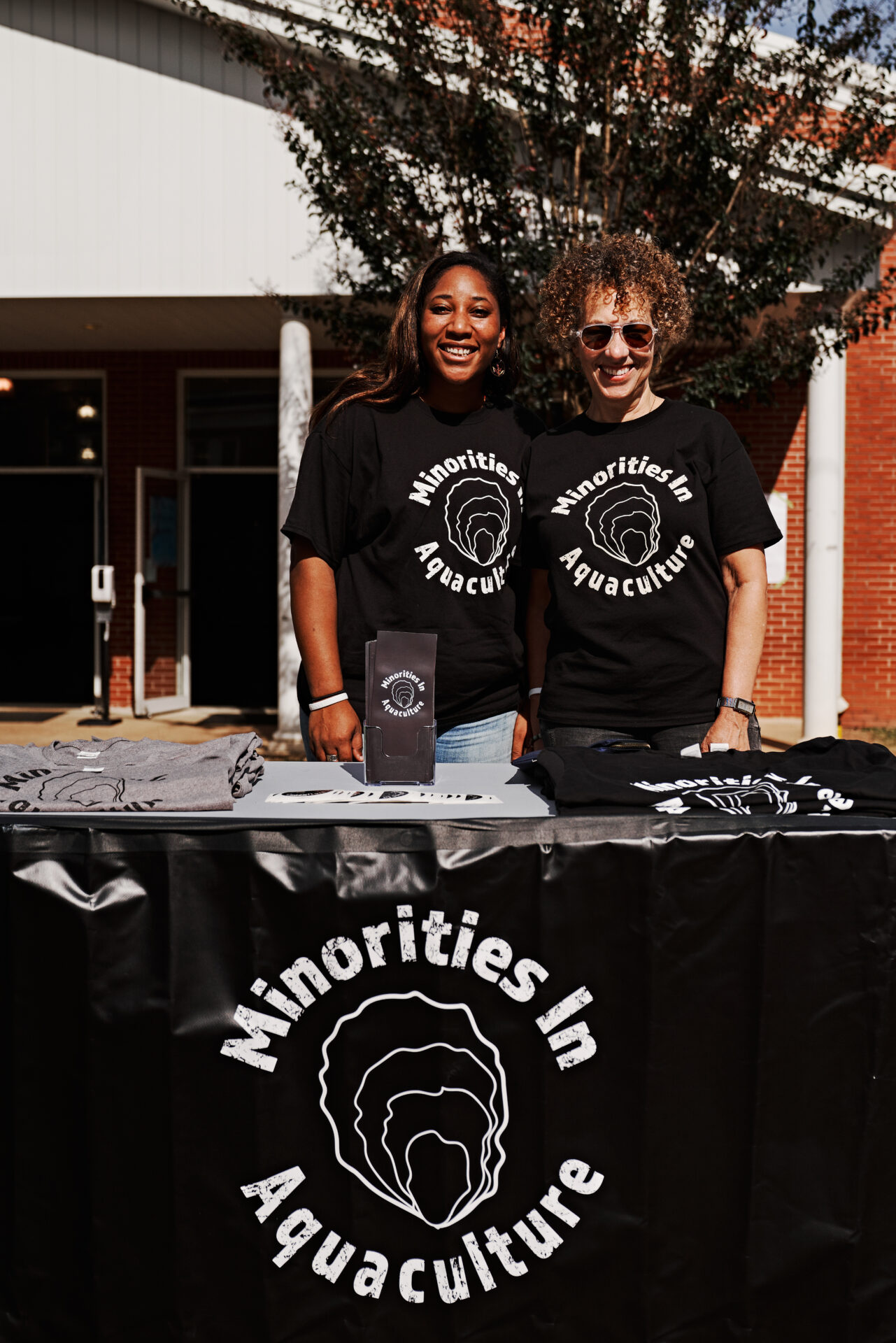
“You just have to trust the process, but mostly trust and believe in yourself,” says Imani Black, an oyster farmer who took a leap of faith when she founded Minorities in Aquaculture (MIA). The Maryland-based nonprofit was founded in 2020, took off in 2021, and has been growing ever since. Aquaculture, or the farming of seafood, produces nearly half of all seafood consumed in the world. “Basically, it’s the same process of agriculture,” says Black, “just in the water and with marine animals.” This includes fish like trout, catfish, and salmon and shellfish like oysters and clams.
Black created MIA to address not only diversity but also sustainability in the industry. She says the current decline in the industry’s workforce will impact sustainable seafood production, which includes the restoration of marine habitats and the populations of many species of fish, shellfish, and marine grasses. “MIA is really trying to be the bridge between the two,” says Black, “[and] increase the workforce in aquaculture by empowering, supporting, and educating all the underrepresented demographics that are not fully engaged in aquaculture or only in one main sector of the industry.”
Black has known since she was little that she wanted a career on the water. Growing up in Chestertown, Maryland, on the Chesapeake Bay, she attended science camps and environmental volunteer events. “MIA was born and inspired by my hometown and the maritime culture that really shapes this area,” she says. After college, she got her first oyster aquaculture internship at Virginia Institute of Marine Science, which sparked her interest in joining the field. She launched MIA about six years into her aquaculture career. Today, Black and her team aim to offer more funded career-building opportunities for MIA members and women of color, promote engagement within aquaculture, and build a strong internal team. The nonprofit will welcome a new group of interns this summer, which may inspire someone to join the aquaculture field and make a difference just like Black, who paved the way. She says that’s been her goal from the beginning. “Having a chance to help someone within their own marine experience is amazing.”
Keep Reading
In the Field
Café Reconcile Serves a Greater Purpose
With a team of employed teenaged interns, Café Reconcile sets itself apart as a […]
Cookbook Club
Carla Lalli Music on Overcoming Cooking Barriers
James Beard-award winning cookbook author Carla Lalli Music shares how to “always be cooking,” […]
In the Field
Dine Diaspora Empowers Culture and Food
Meet Dine Diaspora. An agency creating equitable food space for people to connect and […]
share
trending content
-
FINAL Vote for Your Favorite 2025 Southern Culinary Town
-
Get To Know Roanoke, Virginia
-
Shrimp and Grits: A History
by Erin Byers Murray -
New Myrtle Beach Restaurants Making Waves
-
FINAL VOTING for Your Favorite Southern Culinary Town
More From In the Field
-
A Cajun Christmas Menu
-
Nina Compton’s Caribbean-Inspired Christmas Feast
-
Celebrate Moments with Biltmore


